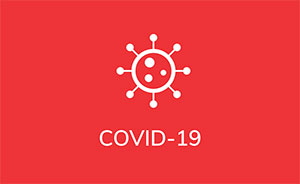There have been several small trials that have already reported that CLL patients don’t do a great job of forming antibodies after being fully vaccinated, but the Leukemia & Lymphoma Society (LLS) trial was much bigger and the data more robust.
The study covered all blood cancer. I will highlight some of both the general and CLL specific findings:
- Nearly 250,000 blood cancer patients in the U.S. may not have detectable antibodies following COVID-19 vaccination
- 64% of CLL patients formed antibodies to the SARS-CoV-2 spike (S) protein when tested two weeks or more after the second vaccination. This was a much better number than seen in other trials.
- For comparison, 97% of CML (chronic myelogenous leukemia) patients responded to the shots. 100% of the immunocompetent form antibodies.
- Treatment in the last two years with a BTKi such as ibrutinib or acalabrutinib lowers the chances of responding.
- The numbers were small, but patients who received anti-CD19 CAR-T therapy that is used in CLL or anti-CD20 monoclonal antibodies (rituximab and obinutuzumab) in the last year respond poorly to vaccination.
- The Moderna vaccine had a slight but statistically significant better response rate. It does contain 3x the mRNA as the Pfizer vaccine.
- Females responded better than males. Reasons are unclear, and this has not been seen in most other trials.
The data are still being parsed and will be updated. T cell function will be studied next. We will keep you informed as results become available. I hope to soon interview my friend and fellow family doctor, Dr. Larry Saltzman, one of the key investigators in this important research.
One more thing. To their credit, LLS shared the results of the semi-quantitative antibodies to the spike (S) protein with the patients. I was one of those patients.
While there is active debate, see this by Drs. Kay and Skarbnik, as to whether patients should be tested for their antibody results, CLL Society believes that LLS did the right thing: it is better to know. Our understanding of how to best use this information will only grow over time. For right now, no matter what the results, we are in step with the CDC’s recently updated recommendations that the immunocompromised such as those with chronic lymphocytic leukemia should get vaccinated but should act as if they are not. That means masking and social distancing.
With this data, we can now firmly state that it is unwise for a CLL patient to assume that to be vaccinated is to be protected.
Making everyone aware of and sensitive to CLL patients’ increased risk of contracting COVID-19 is our first step.
The next step is what to do about that potential increased risk. CLL Society and others are working on solutions. There are reasons to be hopeful.
Here are links to three prior trials on vaccine responses in CLL patients:
- Antibody responses after first and second Covid-19 vaccination in patients with Chronic Lymphocytic Leukemia.
- COVID-19 vaccine efficacy in patients with chronic lymphocytic leukemia
- Efficacy of the BNT162b2 mRNA COVID-19 Vaccine in Patients with Chronic Lymphocytic Leukemia
Here is a link to the pre-proof of the much bigger LLS trial: Antibody response to SARS-CoV-2 vaccines in patients with hematologic malignancies and to its associated tables.
Thanks to LLS for organizing and funding this important effort and thanks to everyone who volunteered in the trial.
Stay strong. We are all in this together.
Brian Koffman MDCM (retired) MS Ed
Co-Founder, Executive VP and Chief Medical Officer
CLL Society, Inc.



